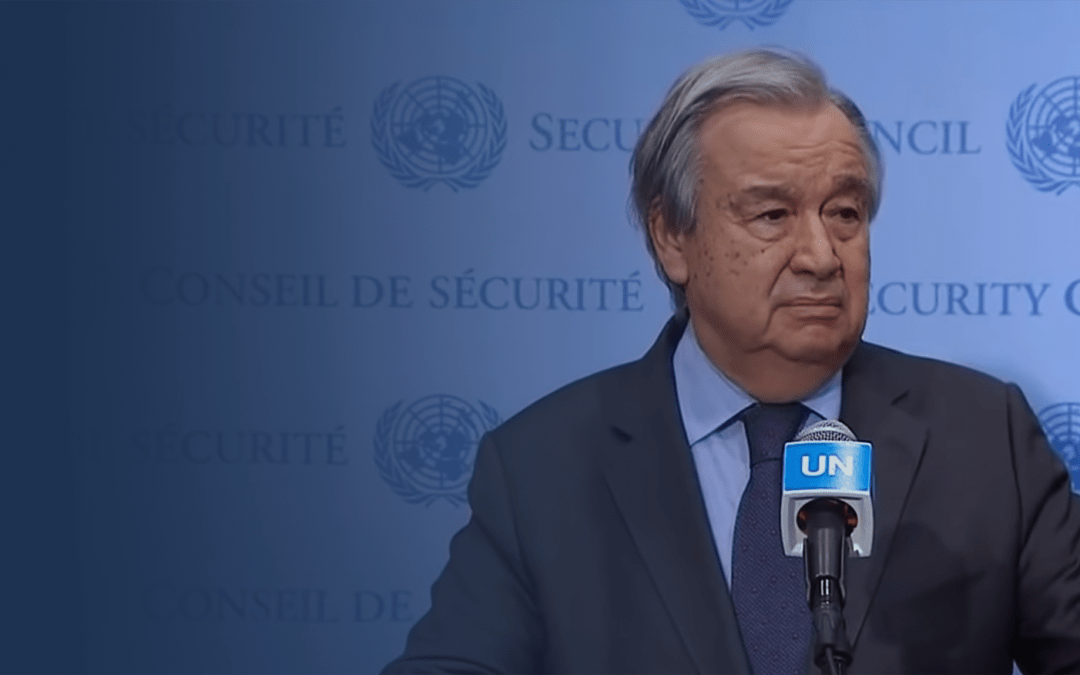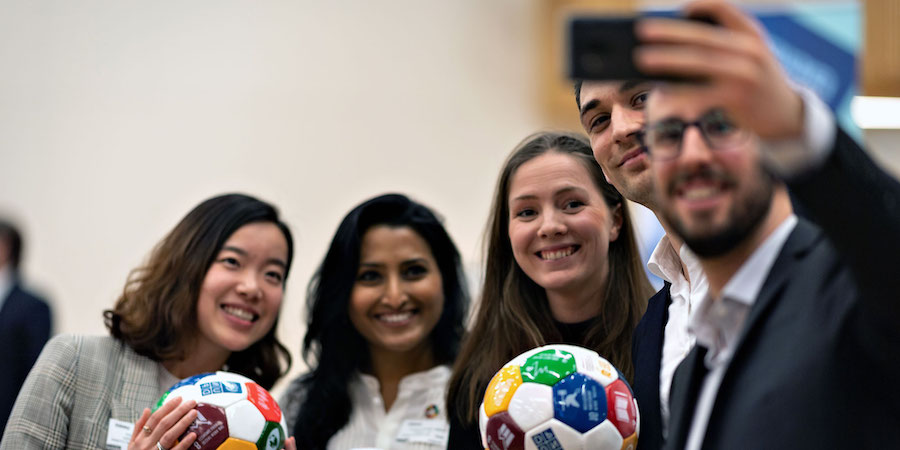
Ways to help Ukraine
Ways to help Ukraine
The situation in Ukraine has changed drastically. The war has caused loss of life, injuries and mass movement of the population to neighbouring countries. According to UNHCR, over a million people have already fled. They indicate that if the number of refugees continues to rise like this, it could be “the biggest refugee crisis this century.” In collaboration with OHCHA and the Connecting Business initiative, UN Global Compact created the guide ‘Ukraine Humanitarian Crisis’. The Guide provides concrete action for businesses to support the Secretary-General’s three-month Flash Appeal for people in Ukraine, and a Regional Refugee Response Plan for the situation outside, under the leadership of the UN High Commissioner for Refugees.
“This escalating violence – which is resulting in civilian deaths, including children – is totally unacceptable. Enough is enough.” –António Guterres, Secretary-General of the UN
People around the world are coming together to protest the war. Initiatives are being set up to support the refugees or the people in Ukraine. You too can help them. You can help with a financial contribution, donating clothing or services, and by speaking out for an end to this war.
We have put together a selection of initiatives. Through these, you can also make a contribution.

Donate
Medical Supplies and Humanitarian Aid
Foundation for the Global Compact
Provides emergency assistance for staff of the Global Compact Network Ukraine. https://bit.ly/3If4Xy8
International Committee of the Red Cross
ICRC has been working in Ukraine since 2014. Support for hospitals and primary healthcare facilities with medical equipment and emergency preparedness. Repairing water stations and supporting households to rehabilitate their damaged homes: https://bit.ly/3hFhEau
International Medical Corps
Non-profit focusing on providing health care services, psychosocial support and care to citizens of countries dealing with disaster, disease and conflict. Will go towards providing medical and mental health resources: https://bit.ly/3MgBwPv
Care
International humanitarian organization. Providing immediate support for 4 million people. Donations go towards providing Ukrainians with water, food, supplies, hygiene kits, immediate support and aid and cash. Note that CARE is prioritizing supporting women, girls, families and elderly: https://bit.ly/3tmjZwA
Project Hope
An international organization that coordinates with healthcare workers to provide medical support to countries in crisis. Sending medical supplies to Ukrainians: https://bit.ly/3vAkHJm
Working with local volunteers, organizations, health care professionals and authorities to help people travel to health care facilities, access prescribed medication and raise awareness about common health challenges: https://bit.ly/3KdS60u
Sunflower of Peace
American nonprofit raising money to put together first aid backpacks for paramedics, soldiers, citizens, and doctors on the front line. According to its fundraising information, “Each backpack is designed for groups of 5 to 10 people and includes a variety of first aid supplies: bandages, anti-hemorrhagic medicine like Quikclot and Celox, medical instruments, and a means for survival in extreme conditions: https://bit.ly/3Mmu7y3
Evacuation support
Vostok SOS
Organization based in Ukraine, partnering with German-Swiss NGO Liberico to provide immediate evacuation support to Ukrainians fleeing their homes. Provides trauma support to victims: https://bit.ly/3MxHOKK
Malteser International
A nonprofit organization, based in Malta that collects “everyday” supplies for Ukrainians who are fleeing their homes. Everyday medicine, cots, blankets, food and cash for individuals affected by the crisis: https://bit.ly/3IXPaoJ
Helping Children Affected by War
NOVA Ukraine
Ukraine-based nonprofit organization providing citizens with everything from baby food to hygiene kits to clothes and household supplies: https://bit.ly/3Cd7abP
UNICEF Ukraine
Help to repair schools damaged by the bombings. Provides health, nutrition, HIV prevention, education, safe drinking water, sanitation and protection for children and families caught in the conflict in eastern Ukraine: https://uni.cf/3pCGlbX
Save the Children
International nonprofit organizations work towards addressing the needs of children in times of crisis. Go towards providing children and their families with hygiene kits, food and water, cash support and psychosocial aid. 85% of every dollar donated goes directly to providing assistance to vulnerable children: https://bit.ly/3tsuqPg
Voices of Children
A charitable foundation that focuses on the psychological effect of armed conflict on children. Provides art therapy, mobile psychologists and individualized support to traumatized children: https://bit.ly/3pAYWoS
Supporting LGBTQ+ Community
OutRight Action
Setting up shelters and providing safety for ALL citizens: https://bit.ly/3MmxgOp





